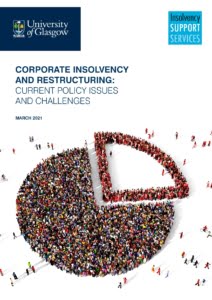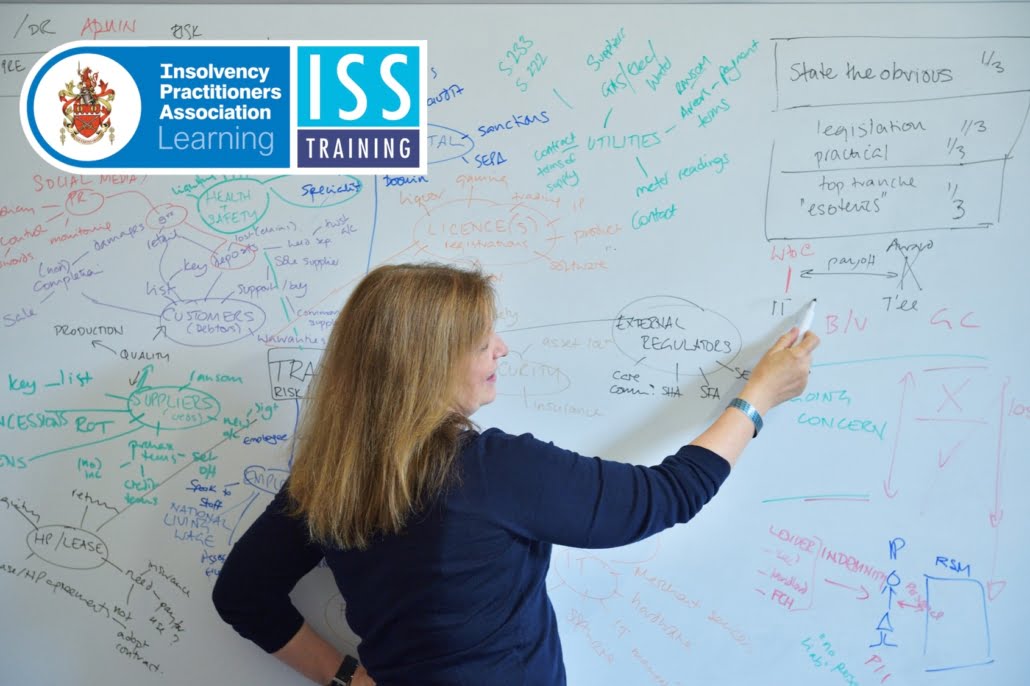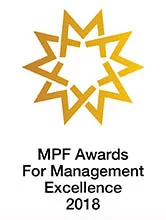A research update on corporate insolvency policy and an opportunity to share your views on COVID-19’s impact on the insolvency and restructuring profession
Recognising the pace of regulatory developments within insolvency amidst a global pandemic and lockdown restrictions, researchers at the University of Glasgow and Insolvency Support Services teamed up to conduct survey-based research across the UK-wide insolvency profession. Our first survey, issued in December 2020, focused upon specific corporate insolvency policy areas and the effects of COVID-19 on business. Our second survey explores issues relating to the insolvency profession, including career and practice management.
Amongst our most significant results from survey one, respondents anticipate that several factors are likely to trigger a rise in corporate insolvency case numbers this year. These include the phasing out of the furlough scheme; continuation of COVID-19 restrictions; repayment demands for deferred VAT, CBILS and BBLs; removal of restrictions on the use of statutory demands and winding-up petitions; and even business leaders’ exhaustion (Figure 1).
Figure 1In your opinion, how likely are the following factors to trigger directors to seek assistance and/or creditors to take action (assuming the COVID-19 restrictions are repealed)?% respondents |
According to global World Bank rankings, the UK corporate insolvency regime is currently ranked 14th. Although World Bank rankings are derived from a hypothetical case study, they do take into consideration the potential for rehabilitation and rescue options for distressed but essentially viable businesses. Of particular interest here, 64% of respondents in survey one consider that prospects for rescue within formal insolvency will decrease because of HMRC’s return to preferential status and further, only 1% of respondents believe HMRC is fully prepared for the increased level of engagement with the insolvency profession that is expected from being a preferential creditor (Figure 2). Together with the wide range of likely triggers identified by our survey results, the effects of COVID-19 will test the UK framework in real terms, and in particular, its ability to rescue businesses.
Figure 2Do you think that HMRC is adequately prepared for the increased level of engagement with insolvency professionals that the return to preferential status will bring?% respondents (%s do not add to 100% due to rounding) |
With activity levels for insolvency professionals likely to increase in the short term, the profession will have to manage this increased and challenging workload alongside their own practice management issues. How well the insolvency profession manages creditor and public expectations will have an impact on the reputation and degree of trust in the profession. ‘Remote’ or ‘home’ working has become the norm for many of us, but without the necessary research and planning typically attached to such significant organisational change. Anecdotal and media sources suggest that some form of home-working and/or flexible working practices may persist into the future. Recognising the anticipated rise in workload and increased professional scrutiny, our second survey explores some of the key issues surrounding practice management, including staff resourcing and recruitment, technological resources, adaptability, and potential threats to the profession.
According to the latest statistics published by the Insolvency Service, there are just over 1,500 IPs in the UK, now licensed and authorised by four RPBs. The precise size of the wider insolvency profession is unknown, but statistics published by R3 in 2013-14 suggest around 12,000 people work in the profession. Although a relatively small profession, the regulation of insolvency practitioners continues to attract considerable political attention. Governmental regulatory review of the profession is underway, including the potential for a single insolvency regulator. The need to capture the opinions of the insolvency profession at this time is arguably critical. According to our survey one results, just under half of respondents (49%) support a single regulator, 34% do not and 16% either don’t know or have no opinion (Figure 3). We also find that of respondents in favour of a single regulator, 50% would prefer a new entity to be established.
Figure 3Do you support the introduction of a Single Regulator?% respondents (%s do not add to 100% due to rounding) |
Our survey one respondent profile also confirms some measures of ‘heterogeneity’ within the insolvency profession, in terms of the size and type of organisation where insolvency professionals work. 67% of respondents work within specialist insolvency and restructuring firms and accounting practices (or professional services firms), but we also find significant numbers working in law practices, within academia and at the professional or regulatory bodies. In survey two, we explore this diversity further by considering how lockdown restrictions have impacted upon individual working practices (recognising the differential impacts of lockdown upon those with caring responsibilities and therefore potentially across gender and age categories, as well as across size and type of workplace setting) and career management across what appears to be a diverse and evolving profession.
Please take a few minutes to complete our second questionnaire. We look forward to sharing the results of this with you and an updated commentary on the results of our first survey in the Summer edition of R3’s RECOVERY Magazine.
Yvonne Joyce BA (Hons), CA is Senior Lecturer in Accountancy at the University of Glasgow















